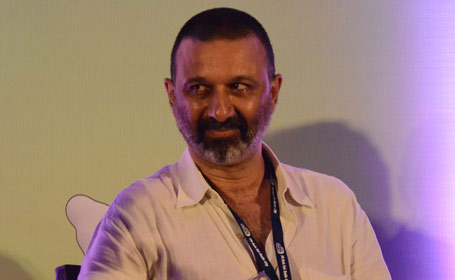MUMBAI: Digital platform is the way ahead for radio industry. As radio entertainment gets more personalized, opportunities in the medium will increase, radio consultant Vehrnon Ibrahim said.
The ex- heavy metal frontman, who has cut his teeth in the radio industry, believes that more than anything else, economics will be the deciding factor that will convince radio stations to go online.
“It’s a cost factor more than anything else. A full-on FM station costs a lot to run but an online station can be managed at a fraction of that cost. This enables smaller companies with strong ideas and formats catering to defined demos to target new listeners and create new trends and because they are online they will remain underground,” he told Radioandmusic.com.
Ibrahim, who is also a strong advocator of underground music and trends, feels that online radio with its flexibility in programming and low operating costs can have the freedom to play and promote music outside mainstream. Unlike India, where all radio stations are overground, other markets, especially the West, have strong independent underground stations and music movements that have loyal audiences and influence trends.
“I have been going on about underground vs. over ground for some time. No new trend in music has ever started out over ground; it’s always come from people who have new ideas and guts. The music industry must encourage the underground while keeping it at an arm’s length. Only then will new trends evolve and new music will come out. Radio plays a reflection of what listeners want or at least they should be doing that but it’s interesting when a station recognizes a new trend and takes ownership for it,” he said.
There is a risk of course that indie/ underground radio operators will have to take. Radio stations- of any kind- need to operate within budget constraints and any decision outside of what’s tried and tested run the risk of losing money.
“It’s a business. If someone wants to experiment for the sake of it they should ‘star’ a rock band and good luck to them. A radio station needs listeners. And the radio stations are under no obligation to the music business to promote new genres. The music business on the other hand is responsible for its own growth too and must look at creating different trends in music for the business to move forward.”
If the underground trend or movement gets picked and followed by audiences, then there is opportunity to leverage the trend.
What underground online radio, can provide listeners, jaded by mainstream programmes, is a sense of discovery of new music and content. This can be built up to create a bigger following through word of mouth communication.
“Think about it, have you ever seen a radio station T- shirt being worn on the street? The brands just don’t have enough traction and cultural identity for a genuine fan following. But an underground movement develops this fast, as long as it’s good, and is spread by word of mouth.”
With none of the country’s leading radio stations (out of 245 odd FM radio stations) attempting anything remotely underground, or experimenting with new or out-of-the-box content, online radio (again) provides potential audiences of new material.
“In 2005 when I headed Red FM, I brought in to India a cutting edge research tool called DMT (Digital Music Testing). Armed with that data we created India’s first CHR hits only format and it was and still is very successful. All the popular songs were from Bollywood. That’s just the way things are. Popular music is just that, popular music is defined by how loved a song is at that point in time. Radio must play popular songs to keep listeners tuned. That’s the name of the game.”
As time progresses and formats get outdated, new need gaps have developed and now there are some listeners who want more eclectic music on their radio- and they simply are not getting it.
“It’s an opportunity. There is nothing wrong if a radio station plays popular music, it has to, but there is something wrong when all the stations are doing the same thing, that means boring radio with no choice for the listener who wants more. There are new need gaps today that can be filled by clever formatting based on solid research.”
Ibrahim doesn’t see why the first online radio stations would follow a free service model which is dependent on ad revenue like Apple’s soon-to-be-launched iRadio, albeit on a smaller scale.
“ Be under no illusion, online radio is the future. With diversified content, cutting edge humour, new and alternative music, online radio will be big business,” he said.
